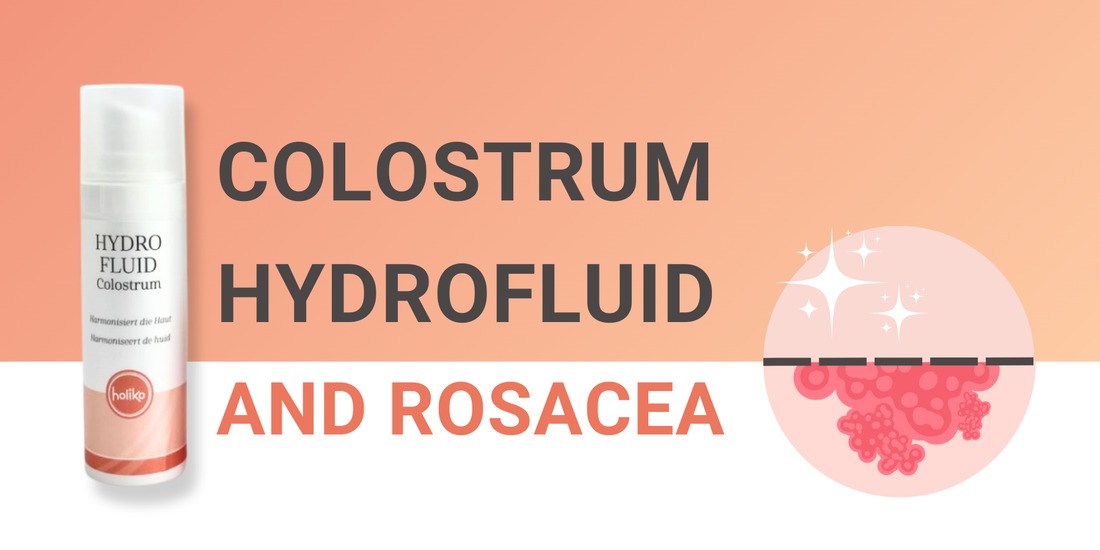Colostrum Hydrofluid and Rosacea

Colostrum Hydrofluid was initially developed as a microbiome-focused skin care solution, particularly designed for individuals with eczema. However, it has since gained recognition for its potential benefits in people with rosacea, a chronic inflammatory skin condition characterized by recurrent redness, pustules, and dilated veins — predominantly affecting women over 30.
The Role of the Microbiome in Rosacea
Recent scientific advancements suggest that rosacea, like eczema, has strong ties to the skin microbiome. People with rosacea often exhibit an increased density of the Demodex mite, a skin microorganism whose skeletal shell can trigger inflammatory responses in the skin's immune system. Compounding this, Demodex is closely associated with the bacterium Bacterium oleronius, which produces proteins capable of causing allergic and inflammatory reactions.
Additionally, Staphylococcus epidermidis, a naturally occurring bacterium on the skin, is found in greater abundance on rosacea-affected skin. At higher skin temperatures, often observed in rosacea due to increased blood flow, S. epidermidisproduces altered proteins that activate the immune system and exacerbate symptoms. Conversely, Cutibacterium acnes, which contributes to skin health by breaking down surface fats and maintaining an acidic pH, is present in significantly lower quantities on rosacea-affected skin.
The Science Behind Colostrum Hydrofluid
In developing Colostrum Hydrofluid, we prioritized minimal irritation, optimal skin barrier support, and microbiome balance. The formula's pH closely matches that of healthy skin, promoting a favorable environment for beneficial bacteria like C. acnes while potentially reducing colonization by S. epidermidis. Though interactions with Demodex mites and B. oleronius have yet to be studied, the carefully curated ingredients aim to soothe inflammation and improve skin health.
A Hopeful Solution
While initially tailored for eczema, Colostrum Hydrofluid has shown promise in supporting individuals with rosacea. By focusing on calming the skin and fostering microbiome harmony, we hope it can pave the way for healthier, more resilient skin for many more people.
